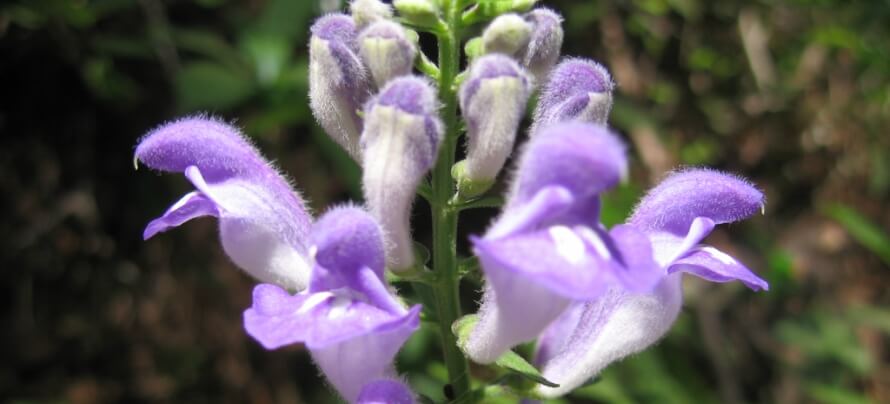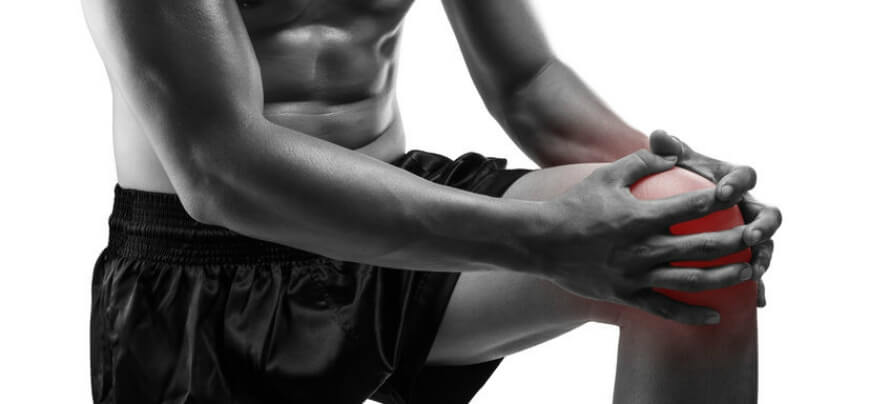Key Takeaways
- Chinese skullcap, or simply skullcap (scutellaria baicalensis), is a herb used in traditional chinese medicine that contains several well researched and potentially powerful compounds.
- Chinese skullcap may hold quite a bit of promise when it comes to neurological health and dealing with anxiety and depression.
- Despite this, the vast majority of studies in humans do not seem to be in western databases (so hard to prove unless you visit a library in China directly) and independent evidence in humans seems rather sparse.
I don’t want to be a killjoy all the time.
When amazing things come up I want to harp about them day after day, to bring praise to the herbs and molecules that deserve it.
Sometimes I, and others at Legion Athletics, harp on about things that’ve consistently proven themselves to be amazing in human studies like creatine. Other times we give praise to things with decent human evidence but amazing promise like spirulina.
But we can’t praise everything.
And sometimes, despite the great promise something shows, hype exceeds evidence.
Skullcap is one of these herbs.
To say that it’s inert is outright false. It seems very promising and, at times, can show great benefits. It’s an herb of promise and great expectations.
But it’s not a panacea nor is it anything even close to a panacea. To call it an immune booster, an incredibly great antioxidant, and to dare suggest that it’s proven to fight cancer?
Outright bollocks.
And that’s being polite.
Skullcap is great mind candy. A wonderful herb to learn more about and to think more about. It can be a great educational tool and example of herbs with near-pharmaceutical potential. In this article I hope to show you exactly how amazing skullcap COULD be.
But it’s just that, could be. It needs more high quality evidence and the astounding lack of human evidence on this newly popular herb will shock you.
- What Is Skullcap?
- Why Do People Supplement with Skullcap?
- Does Skullcap Really Help Reduce Anxiety?
- Does Skullcap Reduce Inflammation?
- Does Skullcap Fight Cancer?
- What Is the Clinically Effective Dose of Skullcap?
- What Types of Results Should I Expect with Skullcap?
- Does Skullcap Have Any Side-Effects?
- The Bottom Line on Skullcap
Table of Contents
+What Is Skullcap?
The skullcap plant is the common name that for the plant genus scutellaria which are collectively known as the “skullcaps” due to their visual appearance being similar to medieval helmets.
Like this:

When it comes to supplements there are two specific species that we might see; Chinese skullcap is scutellaria baicalensis whereas American skullcap is scutellaria lateriflora. It’s best to focus on these two since the genus has well over 300 different species in it.
For the purpose of this article we’ll be discussing mostly Chinese skullcap which is the more common herb that’s found in dietary supplements. However, American skullcap can be used at times and it isn’t necessarily filler (has many of the same bioactives).
Chinese skullcap, as the name implies, has traditionally been used in Chinese medicine for what can generally be seen as sedative and calming purposes (since saying that is more practical to you readers than saying it “clears away the heat-evil and expels superficial evils”).
Furthermore, the scientific name scutellaria baicalensis leads us to the major compound of interest. Baicalin, as well as baicalein, underlie most of the benefits and/or theories we’ll be discussing.
To be clear, baicalin is simply baicalein attached to a sugar molecule (called a glycoside). Think of it as a way to package and deliver baicalein throughout the body. Molecularly they are different but, for all intents and purposes, consider baicalein and its glycoside similar in effects since the latter just turns into the former.
The skullcap herb is the dried form of skullcap that’s used as a supplement, and in skullcap tea.
Why Do People Supplement with Skullcap?
People tend to supplement with skullcap for various reasons.
Some of these are intrinsic to the plant (and related to the unique and potent molecules within it) while other reasons are, well, I’ve said it before but sometimes the Chinese plants are just said to do things since that makes it sell.
Firstly, people do take it as a herbal supplement to reduce anxiety and induce calmness. I’ll address this more in the next section but it’s probably the best chance skullcap has of entering the mainstream. There does seem to be valid evidence to support these claims.
There are claims that it improves immunity which, honestly, I cannot outright deny since there’s at least one human study investigating a link between this herb and the immune system.
However, the effects seem mild and common between many bioactive plants. If you want immune boosting opt for reishi, garlic, or Pelargonium sidoides.
Now with the promising stuff out of the way, skullcap is also recommended for general antioxidant and antiinflammatory properties.
Skullcap is wholly uninteresting in both categories (lack of potency). Yes, technically it has these properties but almost anything does.
Nothing unique about skullcap here.
The idea that it can assist in defending the body against cancer is, how to phrase this, asinine. It’s like somebody looked at the aforementioned immunity study, saw the word “cancer,” and extrapolated their way to the bank.
And then some people also smoke it.
I have no clue why but, news flash, if a herb is relatively safe then lighting it on fire and breathing it sort of circumvents that.
Does Skullcap Really Help Reduce Anxiety?

The main reason people supplement with skullcap is due to claims that it can help reduce anxiety.
Many of these claims can be traced back to a single mechanism, the activation of GABA receptors. This mechanism underlies claims of reducing anxiety, increasing sedation, and helping epilepsy.
This is traced back to the main component, baicalein, which is able to increase signaling through the sedating GABA receptor. Chinese skullcap has other molecules in it that also do this, namely wogonin and K36, so it’s a bit ol’ smorgasbord of GABA activation.
In fact, the potency of these molecules was proven in rats since they were anticonvulsant; reducing the seizure threshold and helping epileptic rats. Anxiety reduction and sedation have also been shown in rats.
And when I mean potency I mean potency.
Bloody hell, K36 has been demonstrated in vitro to be just as potent as diazepam. You know, the benzodiazepine known as VALIUM?
Honestly, I’m quite excited for the future of skullcap not only due to the potency of these molecules but also how they appear to be effective in rats after oral administration (which means a lot, don’t want to shove drugs up your butt 24/7 after all) and at relatively low doses as well.
Supplements have never had a potent GABA agonist (ie. activator) and, because of that, have never truly made an all-purpose sleep supplement. Skullcap might be a breakthrough.
So the preliminary evidence is pretty sound actually.
Numerous molecules activate a well known target to induce desirable effects. Potency is pretty respectable (not earth-shattering, but respectable) and there seems to be consistency in the results.
Then we get to the human studies and…
Yeah, they’re not there.
When checking numerous databases of scientific studies for online sources (NCBI, ScienceDirect, etc.) there are lots of studies in rodents and studies outside of living bodies but for humans? Well, we can choose between immune system, knee pain, or toothpaste.
Alas, the wind has been taken right out of thar sails.
The major claims surrounding skullcap, those of sedation and calming effects that result in less anxiety and improvements to epilepsy, have yet to be officially tested in humans.
There’s one very interesting study on American skullcap (scutellaria lateriflora) which beyond potentially having similar anxiety-reducing effects has been shown to improve mood even when anxiety reduction was not a major issue.
In this study, 350 mg of American skullcap (11.71 mg/g baicalin, 7.67 mg/g baicalein) was given three times a day to subjects who were “relatively non-anxious” and while it failed to show an improvement in anxiety symptoms there seemed to be an improvement of mood in those taking the supplement.
While American skullcap contains the same components of interest as Chinese skullcap it has to be noted that the above study did not suggest an overly powerful mood effect. Perhaps it was due to low levels of anxiety in subjects but, regardless, it needs to be replicated to confirm.
Also not the first time a study accidentally found mood improvements as a side-effect before, such an effect has been seen with nigella sativa (black cumin) when being tested for whether or not it helps metabolic syndrome. It was later replicated with success.
Based on studies with American skullcap it’s reasonable to assume that Chinese skullcap could work in humans but, ultimately, we need more human evidence to confirm.
Does Skullcap Reduce Inflammation?

Technically, yes, but not in humans.
It’s also kind of interesting since technically skullcap contains some salicylic acid in it. You know, the molecule that was later modified to become aspirin?
That’s pretty cool.
And almost any plant can be proven in vitro to reduce inflammation, mostly by just shoving enough into a macrophage (the pac man cells of the immune system) until they decide to stop doing their job.
But practically speaking?
A single human study where skullcap wasn’t even the only thing being tested—it was a proprietary blend of skullcap with acacia catechu.
Simply put, obviously an antioxidant plant is going to technically be anti-inflammatory but there doesn’t seem to be any evidence that this is much better than any other herb.
Does Skullcap Fight Cancer?
Cancer is, for all intents and purposes, abnormality in cell replication.
Cells have a schematic they are supposed to follow to a T but, since the human body is imperfect, replication is never 100% perfect.
Abnormalities in cell replication will lead to symptoms of aging.
Things that make cell replication worse could arguably worsen the aging process, and when the cells replicate in a super weird way that causes mass clumps of abnormal cells (a tumor), that’s cancer.
To claim something helps with cancer would be to claim that it either prevents or reduces the risk of these abnormalities in the first place (“prevents” cancer) or, that it’s able to target the tumors and reduce their size (“fights” cancer).
While I cannot be certain where the claims of skullcap fighting cancer originated it may be tied back to the aforementioned immunity boosting study.
In this study, skullcap administration (to the immune cells of children suffering from acute lymphoblastic leukemia) saw a reduction of cancerous immune cells with no change to regular immune cells.
That’s the only study, and it’s not even a study where supplementation was given orally to the subjects. It was applied outside the body, known as ex vivo, and is as preliminary as human evidence can get.
So the evidence that skullcap can fight cancer is highly preliminary, may only be related to the immune system, and is by no means at a level where it should be publicly recommended as a chemotherapeutic adjuvant (support).
As a final note, another species in this family known as scutellaria barbata might potentially be useful.
While it also only has one human study at this point in time, it’s more applicable to the claim of skullcap fighting cancer. Oral supplementation improved the condition of breast cancer patients.
But barbata is neither American or Chinese skullcap, the ones we actually see in dietary supplements.
What Is the Clinically Effective Dose of Skullcap?
At this moment in time, due to a lack of human studies published on the usage of skullcap, it’s difficult to establish what a “clinically effective dose” of skullcap is.
American skullcap has one study where 350 mg of the plant (11.71 mg/g baicalin, 7.67 mg/g baicalein) has shown effects, so that’s a good starting point. In other words, 1,050 mg of the plant conferring about 20 mg of baicalin and baicalein combined, split into three even doses across the day.
Baicalein is considered “sparingly soluble” in aqueous solutions, but soluble in lipids, so it seems prudent to take the skullcap with meals or with some fatty acids.
The study in question used the aerial parts of the plant (i.e. stuff above the ground, not the roots). The roots might also be a viable option but they need to confer the same levels of the two molecules we’re interested in.
Ultimately though, fairly simply starting point. 20 mg of baicalin and/or baicalein a day in up to three divided doses taken with food.
What Types of Results Should I Expect with Skullcap?

I can’t outright state whether or not you will feel anything when supplementing with skullcap but, on the assumption that it’s able to increase GABA signaling to a relevant degree then you can expect:
- A reduction in symptoms of anxiety, both stimuli-based anxiety and generalized anxiety.
- An improvement in sleep quality if taken before bed.
- A reduction in general awareness (i.e. do not take when operating heavy machinery) sort of like lemon balm or melatonin.
- Perhaps less frequency or magnitude of epileptic seizures (take that with a huge grain of salt).
Given the effects on general awareness and sleep, it’s definitely something that you might want to experiment with just to see how it works. Things that affect awareness tend to be fairly obvious if they’re potent.
Does Skullcap Have Any Side-Effects?
Skullcap is odd in this regard.
Despite a lack of human studies looking at the efficacy of this herb, there are actually quite a few studies published assessing the safety of skullcap.
Given what the studies suggest, looking mostly at the component baicalein, it seems surprisingly safe over the immediate and short term. 2,800 mg baicalein was without side-effects and multiple doses of up to 800 mg of this molecule were also well tolerated.
This means that, if we are to assume that 20 mg of baicalein is an effective dose, then even 140x the dose won’t harm you in the short term.
For something that works on GABA and, for all intents and purposes should carry the same warning label as benzodiazepine drugs, this is fairly impressive. Of course more studies are needed yadda-yadda-yadda but, damn, 140x safety buffer…
For all intents and purposes, skullcap seems quite safe to experiment with in the short term (no side-effects reported with very high doses for up to 10 days).
The Bottom Line on Skullcap
At the end of the day, Chinese skullcap (and American skullcap as well) contain bioactives that could very well become the new “norm” in a few years time. All the preliminary tests have passed with flying colors, safety tests have been conducted, and it shows promise that not many other supplements have shown yet.
Marketing-wise, we are currently in the stage where early adopters attempt to sell it to you anyways because being the “first on the scene” or being the “first company to revolutionize sleep” really sounds nice.
And honestly, it doesn’t seem to be the worst thing to jump the gun on. It has the safety studies after all, sometimes supplement companies ignore that.
So I cannot yet recommend skullcap supplements but, if you want to experiment with them, know that it is more than reasonable they benefit sleep and anxiety. Ignore the other claims though.










